#shihor
Photo

Mirror selfie ❣️🥵🥵 Tag Mirror Lover💘 . . . . . . #mirrorselfie #viral #viralpost #portrait #editing #repost #viral #goku #dbz #2022 #girl #boys #gujarat #gujjus #shihor #garvigujarat #support #live #viraltiktok #tiktok #indian #bgmindia #ff #followers #omegle (at સિહોર) https://www.instagram.com/p/Cd_PVU8jB81/?igshid=NGJjMDIxMWI=
#mirrorselfie#viral#viralpost#portrait#editing#repost#goku#dbz#2022#girl#boys#gujarat#gujjus#shihor#garvigujarat#support#live#viraltiktok#tiktok#indian#bgmindia#ff#followers#omegle
1 note
·
View note
Text
Bringing Back the Ark
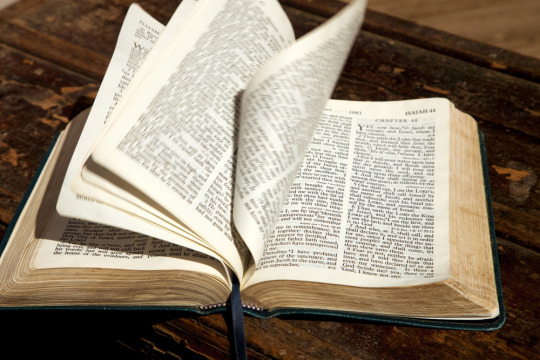
1 David consulted with the captains of thousands and of hundreds, even with every leader.
2 David said to all the assembly of Israel, If it seem good to you, and if it be of Yahweh our God, let us send abroad everywhere to our brothers who are left in all the land of Israel, with whom the priests and Levites are in their cities that have suburbs, that they may gather themselves to us;
3 and let us bring again the ark of our God to us: for we didn't seek it in the days of Saul.
4 All the assembly said that they would do so; for the thing was right in the eyes of all the people.
5 So David assembled all Israel together, from the Shihor [the brook] of Egypt even to the entrance of Hamath, to bring the ark of God from Kiriath-jearim.
6 David went up, and all Israel, to Baalah, [that is], to Kiriath-jearim, which belonged to Judah, to bring up from there the ark of God Yahweh that sits [above] the cherubim, that is called by the Name.
7 They carried the ark of God on a new cart, [and brought it] out of the house of Abinadab: and Uzza and Ahio drove the cart.
8 David and all Israel played before God with all their might, even with songs, and with harps, and with psalteries, and with tambourines, and with cymbals, and with trumpets.
9 When they came to the threshing floor of Chidon, Uzza put forth his hand to hold the ark; for the oxen stumbled.
10 The anger of Yahweh was kindled against Uzza, and he struck him, because he put forth his hand to the ark; and there he died before God.
11 David was displeased, because Yahweh had broken forth on Uzza; and he called that place Perez-uzza, to this day.
12 David was afraid of God that day, saying, How shall I bring the ark of God home to me?
13 So David didn't move the ark to him into the city of David, but carried it aside into the house of Obed-edom the Gittite.
14 The ark of God remained with the family of Obed-edom in his house three months: and Yahweh blessed the house of Obed-edom, and all that he had.
— 1 Chronicles 13 | World English Bible (WEB)
The World English Bible is in the public domain.
Cross References: Genesis 50:10; Exodus 25:22; Leviticus 10:2; Joshua 9:17; Joshua 15:9; 1 Samuel 7:1-2; 2 Samuel 6:3-4; 2 Samuel 6:5-6; 2 Samuel 6:10; 1 Kings 8:65; 1 Chronicles 12:40; 1 Chronicles 15:13; 1 Chronicles 15:25; 1 Chronicles 16:38; 1 Chronicles 26:4-5; 2 Chronicles 5:12
#David#Ark of the Covenant#returned#Uzzah touches the Ark#1 Chronicles 13#Book of First Chronicles#Old Testament#World English Bible#WEB
3 notes
·
View notes
Text
Mount Carmel
Joshua 19:24-31
24 The fifth lot came out for the tribe of the children of Asher according to their families. 25 And their territory included Helkath, Hali, Beten, Achshaph, 26 Alammelech, Amad, and Mishal; it reached to Mount Carmel westward, along the Brook Shihor Libnath. 27 It turned toward the sunrise to Beth Dagon; and it reached to Zebulun and to the Valley of Jiphthah El, then northward…
View On WordPress
0 notes
Text
Joshua 19: God Sets The Allotments For Simeon And The Other Tribes Of Israel
1 The second lot came out for the tribe of Simeon according to its clans. Their inheritance lay within the territory of Judah.
2 It included:
Beersheba (or Sheba), Moladah,
3 Hazar Shual, Balah, Ezem,
4 Eltolad, Bethul, Hormah,
5 Ziklag, Beth Markaboth, Hazar Susah,
6 Beth Lebaoth and Sharuhen—thirteen towns and their villages;
7 Ain, Rimmon, Ether and Ashan—four towns and their villages—
8 and all the villages around these towns as far as Baalath Beer (Ramah in the Negev).
This was the inheritance of the tribe of the Simeonites, according to its clans.
9 The inheritance of the Simeonites was taken from the share of Judah, because Judah’s portion was more than they needed. So the Simeonites received their inheritance within the territory of Judah.
Allotment for Zebulun
10 The third lot came up for Zebulun according to its clans:
The boundary of their inheritance went as far as Sarid.
11 Going west it ran to Maralah, touched Dabbesheth, and extended to the ravine near Jokneam.
12 It turned east from Sarid toward the sunrise to the territory of Kisloth Tabor and went on to Daberath and up to Japhia.
13 Then it continued eastward to Gath Hepher and Eth Kazin; it came out at Rimmon and turned toward Neah.
14 There the boundary went around on the north to Hannathon and ended at the Valley of Iphtah El.
15 Included were Kattath, Nahalal, Shimron, Idalah and Bethlehem. There were twelve towns and their villages.
16 These towns and their villages were the inheritance of Zebulun, according to its clans.
Allotment for Issachar
17 The fourth lot came out for Issachar according to its clans.
18 Their territory included:
Jezreel, Kesulloth, Shunem,
19 Hapharaim, Shion, Anaharath,
20 Rabbith, Kishion, Ebez,
21 Remeth, En Gannim, En Haddah and Beth Pazzez.
22 The boundary touched Tabor, Shahazumah and Beth Shemesh, and ended at the Jordan. There were sixteen towns and their villages.
23 These towns and their villages were the inheritance of the tribe of Issachar, according to its clans.
Allotment for Asher
24 The fifth lot came out for the tribe of Asher according to its clans.
25 Their territory included:
Helkath, Hali, Beten, Akshaph,
26 Allammelek, Amad and Mishal. On the west the boundary touched Carmel and Shihor Libnath.
27 It then turned east toward Beth Dagon, touched Zebulun and the Valley of Iphtah El, and went north to Beth Emek and Neiel, passing Kabul on the left.
28 It went to Abdon, Rehob, Hammon and Kanah, as far as Greater Sidon.
29 The boundary then turned back toward Ramah and went to the fortified city of Tyre, turned toward Hosah and came out at the Mediterranean Sea in the region of Akzib,
30 Ummah, Aphek and Rehob. There were twenty-two towns and their villages.
31 These towns and their villages were the inheritance of the tribe of Asher, according to its clans.
Allotment for Naphtali
32 The sixth lot came out for Naphtali according to its clans:
33 Their boundary went from Heleph and the large tree in Zaanannim, passing Adami Nekeb and Jabneel to Lakkum and ending at the Jordan.
34 The boundary ran west through Aznoth Tabor and came out at Hukkok. It touched Zebulun on the south, Asher on the west and the Jordan on the east.
35 The fortified towns were Ziddim, Zer, Hammath, Rakkath, Kinnereth,
36 Adamah, Ramah, Hazor,
37 Kedesh, Edrei, En Hazor,
38 Iron, Migdal El, Horem, Beth Anath and Beth Shemesh. There were nineteen towns and their villages.
39 These towns and their villages were the inheritance of the tribe of Naphtali, according to its clans.
Allotment for Dan
40 The seventh lot came out for the tribe of Dan according to its clans.
41 The territory of their inheritance included:
Zorah, Eshtaol, Ir Shemesh,
42 Shaalabbin, Aijalon, Ithlah,
43 Elon, Timnah, Ekron,
44 Eltekeh, Gibbethon, Baalath,
45 Jehud, Bene Berak, Gath Rimmon,
46 Me Jarkon and Rakkon, with the area facing Joppa.
47 (When the territory of the Danites was lost to them, they went up and attacked Leshem, took it, put it to the sword and occupied it. They settled in Leshem and named it Dan after their ancestor.)
48 These towns and their villages were the inheritance of the tribe of Dan, according to its clans.
Allotment for Joshua
49 When they had finished dividing the land into its allotted portions, the Israelites gave Joshua son of Nun an inheritance among them,
50 as the Lord had commanded. They gave him the town he asked for—Timnath Serah in the hill country of Ephraim. And he built up the town and settled there.
51 These are the territories that Eleazar the priest, Joshua son of Nun and the heads of the tribal clans of Israel assigned by lot at Shiloh in the presence of the Lord at the entrance to the tent of meeting. And so they finished dividing the land.
#Lord God Jehovah#Holy Bible#Joshua ch.19#Joshua#Eleazar#Israelites#Allotments#Tribes#Inheritances#Jacob#Simeon#Zebulun#Isaachar#Asher#Naphtali#Dan#Divide#Promise Land#Clans#Only Him
0 notes
Text
Daily Bible Reading 23 March, 2024
Daily Bible Reading: Joshua 13-15, Luke 1:57-80
Joshua 13:1-7 (ESV) Now Joshua was old and advanced in years, and the LORD said to him, “You are old and advanced in years, and there remains yet very much land to possess. This is the land that yet remains: all the regions of the Philistines, and all those of the Geshurites (from the Shihor, which is east of Egypt, northward to the boundary of…
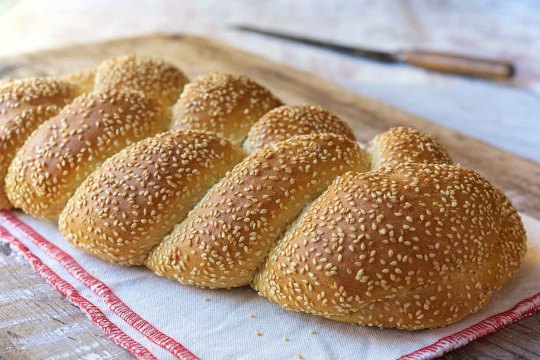
View On WordPress
0 notes
Text
Top Career Counselling Services in Shihor, Ahmedabad
Satya Mehta: Best Career Counsellor in Shihor, Ahmedabad | School Students Graduates & Working Professionals
Are you struggling to make important career decisions? Do you feel unsure about the path you should take after school or college? Satya Mehta, the best career counsellor in Ahmedabad, India, is here to help. With years of experience and expertise in career counselling, Satya Mehta…

View On WordPress
0 notes
Text
1 Chronicles 13: 1-14. "Bringing Back the Ark."

13 David conferred with each of his officers, the commanders of thousands and commanders of hundreds.
2 He then said to the whole assembly of Israel, “If it seems good to you and if it is the will of the Lord our God, let us send word far and wide to the rest of our people throughout the territories of Israel, and also to the priests and Levites who are with them in their towns and pasturelands, to come and join us. 3 Let us bring the ark of our God back to us, for we did not inquire of[a] it[b] during the reign of Saul.” 4 The whole assembly agreed to do this, because it seemed right to all the people.
5 So David assembled all Israel, from the Shihor River in Egypt to Lebo Hamath, to bring the ark of God from Kiriath Jearim. 6 David and all Israel went to Baalah of Judah (Kiriath Jearim) to bring up from there the ark of God the Lord, who is enthroned between the cherubim—the ark that is called by the Name.
Shihor River=The River of Darkness. The Ark, the Vault, that which separates darkeness from light, intelligence from ignorance, grace from disgrace began in the murk of pre-civilized life, before the stars were lit. Its emergence from the Darkness is what caused the birth of the creation at the hands of the God of Israel.
Lebo Hamath=The emergence of the Soul out of chaos within the Ark is the beginning of sentient life:
ל
The particle ל (le) means to or onto and may describe a physical or mental motion toward or a behavioral effort, an evolutionary one or express determination or purpose. The name of this letter, lamed, describes a cattle prod or goad.
בוא
The very common verb בוא (bo') means to come, or rather: to move from a condition of wide dispersal toward a focal point of contraction. Noun באה (bi'a) means entrance or entry. Noun מבוא (mabo') denotes the act of entering, or the place where the verb is performed, namely an entrance. A specific use of this noun describes the place where the sun "comes" or sets, causing this noun to be synonymous with the west. Noun תבואה (tebu'a) denotes an item that experiences the verb, or specifically: a field upon which harvesters collect the yield in order to stack it at a central point of storage.
All movement of the soul has to emulate God's journey as the Soul from East to West, one purpose after another.
The greatest purpose mankind has to is to form a Federation and keep it intact, generation after generation:
Kiriath Jearim=A Federation of Honeycombs.
קרר
Root קרר (qarar) means to cool off in a thermodynamic sense: to go from hot gas to cool liquid to a cold solid. Socially this would describe warring tribes "cooling off" into culturally compatible peoples and liquid trading networks and ultimately the formation of cities and solid nations. Intellectually, diverse viewpoints might congeal into local conventions and ultimately a global standard.
Adjective קר (qar) means cool. Nouns קר (qor) and קרה (qara) mean cold. Noun מקרה (meqera), meaning coolness.
Noun קיר (qir) is one of a few words for wall. It might relate to the root because bricks are congealed mud, and a wall is bricks pieced together (non-standard bricks take some puzzling and pounding). The noun קרקע (qarqa') means floor; earth trampled into a compact state. The verb קרקר (qarqar) means to forcibly compact, to pound down.
קרה
Verb קרה (qara), and its by-form קרא (qara'), mean to near, to meet or to happen upon. Noun קורה (qora) describes a rafter or beam; the things that come together to form a roof, and which obviously relate to bricks pieced into a wall. Verb קרה (qara) means to piece beams together and noun מקרה (meqareh) means literally place of beams; beam-work.
Nouns קרה (qareh) and מקרה (miqreh) mean chance or accident, fortune or fate. Noun קרי (qeri) means opposition, contrariness. At a social level, chance meetings and opposition are the very rafters that carry society's roof.
For this same reason, the nouns קריה (qiryah) and קרת (qeret) are the words for city and federation of cities.
יער
The verb יער (ya'ar) isn't used in the Bible and it's a complete mystery what it might have meant. Noun יער (ya'ar) is the common word for forest or thicket, and the identical noun יער (ya'ar) means honeycomb. It is, of course, perfectly possibly that these two nouns are not two but one, describing something general like a thing that consists of many elements, which contain energetic nutrients (either fruits or honey), and which are patrolled by ferocious animals. The latter noun also occurs as the variant יערה (ya'ra), honeycomb.
Baalah of Judah=Mistress of Glory
בעל
The verb בעל (ba'al) means to exercise dominion over; to own, control or be lord over. The ubiquitous noun בעל (ba'al) means lord, master and even husband, and its feminine counterpart בעלה (ba'ala) means mistress or landlady.
7 They moved the ark of God from Abinadab’s house on a new cart, with Uzzah and Ahio guiding it. 8 David and all the Israelites were celebrating with all their might before God, with songs and with harps, lyres, timbrels, cymbals and trumpets.
Abinadab= the Governor, the Decision Maker
אב
The noun אב ('ab) means father, but describes primarily a social relationship rather than a biological one. That social fatherhood was the defining quality of the community's alpha male, the one around whom all economy revolved and from whom emanated all instructions by which the 'sons' (בן, ben) operated. It's unclear where this word אב ('ab) comes from but the verb abu means to decide.
Harps=
The different number of harp strings correspond to the different stages and levels of refinement and spiritual attunement.
The number seven represents creation and nature: seven colors of the rainbow, seven days of creation, seven years in the cycle of the sabbatical year, etc.
Lyres/Psalters= hymns with liturgical value
Timbrels=used after the Red Sea was split to praise God.
After the great miracle of the Splitting of the Sea, Moses led the Jewish people in singing praises to G‑d. The Torah then describes how Miriam led the women in singing their own song of praise, while dancing and playing musical instruments:
Miriam, the prophetess, Aaron’s sister, took a timbrel in her hand, and all the women came out after her with timbrels and with dances. And Miriam called out to them, “Sing to the Lord, for very exalted is He; a horse and its rider He cast into the sea.”1
This is the only instance recorded in the Torah where women sang their own song. Why is that, and why was Miriam the one to lead it?
Ironically, it was as a result of the bitterness and longing of the Jewish people that they merited to be redeemed. And the greater the bitterness over their condition, the greater was their joy at the Crossing of the Sea. “In proportion to the pain is the reward.” Therefore it was Miriam and the women—those who had suffered most deeply—who went out with drums and dancing.
They were freed from their fear of their oppressorsThis explains why, in describing Miriam at the Sea, the Torah calls her “Miriam the prophetess, the sister of Aaron.” It was only when the Jewish people saw the Egyptians dead on the beach, and they were freed from their fear of their oppressors, that Miriam’s prophecy was fulfilled in its entirety. At that time, their joy reached its height—and could find full expression only in a song accompanied by instruments and dance.
Cymbals=Noun משמע (mishma') means rumor or a thing heard. Noun משמעת (mishma'at) refers to a group or listeners.
Trumpets=Torah is the message, the trumpet is the microphone.
9 When they came to the threshing floor of Kidon [a kind of javelin], Uzzah [place of safety] reached out his hand to steady the ark, because the oxen stumbled.
10 The Lord’s anger burned against Uzzah, and he struck him down because he had put his hand on the ark. So he died there before God.
11 Then David was angry because the Lord’s wrath had broken out against Uzzah, and to this day that place is called Perez Uzzah.[to break from refuge]/
12 David was afraid of God that day and asked, “How can I ever bring the ark of God to me?” 13 He did not take the ark to be with him in the City of David. Instead, he took it to the house of Obed-Edom the Gittite, "To serve in silence at the winepress."
דמם
The root דמם (ddm) is all about beginnings — or rather the simplicity from whence complexity arises — from being still before the noise starts to being monochromatic before color vision starts. Verb דמם (damam) means to be still, noun דממה (demama) denotes calmness and דמה (dumma) denotes a silenced person.
14 The ark of God remained with the family of Obed-Edom in his house for three months, and the Lord blessed his household and everything he had.
Jewish sages generally state the Ark is a stable thing that is located in static union with where it was originally built by Adam:
It is universally accepted that the site on which David and Solomon built the altar on the threshing floor of Ornan, is the location on which Avraham built the altar on which he prepared Yitzchak for sacrifice.
Ornan= From the verb ארן ('aran), to be agile, aroused or at the center of cheer.
On this location, Noach built [an altar] when he emerged from the ark. On this location, Cayin and Hevel offered [their] sacrifices. And Adam, the first man, offered a sacrifice on this location after he was created. [Indeed,] he was created from this very spot; as our Sages said,4 “Adam was created from the place from which he [would be granted] atonement.”
God's choice for the placement of the Ark is said to be independent of all other choices. One moves towards God not the other way around. The oxen, the priests, stumbled, ie they failed to mention this,and the ark began to falter in the hands of the dummies who should not have tried to take possession of it.
We have made the same mistake, often we make it on a daily basis. There is no way to move the Ark around change its disposition or convey it to a new owner. It is all that exists, this container for the grace of God that creates a border with the darkness and keeps us safe from oblivion.
In this safe containerized space, soul and souls are to Federate and remain free of the forces of darkness that occasionally are spawned in Egypt, a place where men of petty means feed themselves nonsense about grandeur they do not possess.
Over the top of their voices rings the call of intelligence within people who are called to God, to competence, instead.
To abandon ignorance where it stands and follow decision makers capable of bringing civilization to its crest is what is meant by "pressing the wine in silent service", attentive to the voice of reason which is far away from Egypt, the Voice of Discord.
We obviously need go nowhere to be reasonable. Civilization is not a moving target. The rationale for it and the reason needed to make it real are always at home within us; realization of this and pressing the grapes in the head first is the meaning of the Bringing Back of the Ark.
0 notes
Text
"Land Still to Be Taken." From Joshua, Chapter 13.
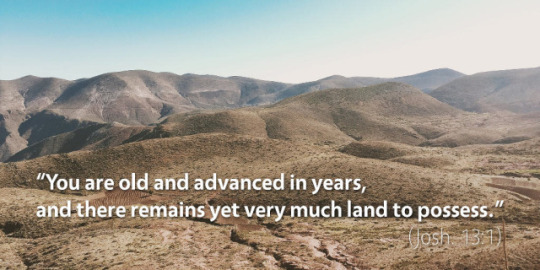
From Chapter 12:
"These are the sins: Gossip and Idolatry. They degrade man and make him into a provincial savage. Men like this must be hunted and made to become civilized, or they must be silenced."

The opposite are Israelites, who:
"Roar the truth, worship God, and dwell in cities. They become cultured through exposure to sacred ideals from the orchard of humanity, including the tenets of other faiths, and creates conditions in which others can live in the highest of conditions and experience delight."
Even still, there is more territory to cover:
Land Still to Be Taken
13 When Joshua had grown old, the Lord said to him, “You are now very old, and there are still very large areas of land to be taken over.
2 “This is the land that remains: all the regions of the Philistines and Geshurites, 3 from the Shihor River on the east of Egypt to the territory of Ekron on the north, all of it counted as Canaanite though held by the five Philistine rulers in Gaza, Ashdod, Ashkelon, Gath and Ekron; the territory of the Avvites 4 on the south; all the land of the Canaanites, from Arah of the Sidonians as far as Aphek and the border of the Amorites; 5 the area of Byblos; and all Lebanon "purity" to the east, from Baal Gad below Mount Hermon "the highest point" to Lebo Hamath.
In the NORTH:
Philistines= griever, burrower, weakener
Geshurites= the beholders
Shihor= deep dark, prelude to solar eclipse
Egypt= confederacy
Ekron= extermination
Canaanite= royalty
Gaza=strong
Ashdod= beloved of Dagon, the god of natural abundance [the Philistines were Babylonians]
Ashkelon= Greek. A gathering.
In the SOUTH:
Arah= To travel, keep company
Aphek= riverbed
Amorites= talkers
Sidonians= fishboners
Byblos= Books
Baal Gad= Lord Of Fortune, Lord Of The Invasion
Mount Hermon= the Highest Point
Lebo Hamath= Coming Onto Fortification, Realm Of Hamath
="What is hidden by the blind, who exterminate the royal qualities by worshipping themselves and eternal life instead of God, can be found in the Temple by men of strength who gather to overthrow them- the talkers and fish poachers."
The means are revealed in the Light of the Sun, the Most High who calls men to the highest point through instruction in the Torah and fortifies them there."
6 “As for all the inhabitants of the mountain regions from Lebanon to Misrephoth Maim "burning of waters", that is, all the Sidonians, I myself will drive them out before the Israelites. Be sure to allocate this land to Israel for an inheritance, as I have instructed you, 7 and divide it as an inheritance among the nine tribes and half of the tribe of Manasseh.”
Jacob had twelve sons, the first nine are:
Jacob had twelve sons:
23 The sons of Leah:
Reuben [the leader] the firstborn of Jacob [the follower],
Simeon [who listens], Levi [is loyal], Judah [who praises], Issachar [dedicated] and Zebulun [the glorious dwelling] .
= "Leaders are born from servants and followers. Those who are loyal are rewarded and live in glory."
24 The sons of Rachel [the ewe, youth beauty] :
Joseph [fruitful] and Benjamin [Seated Right].
25 The sons of Rachel’s servant Bilhah [calamity]:
Dan [to govern] and Naphtali [challenges].
"Youth, beauty, security, and prosperity are preserved by men in the government who are willing to fight."
-> The Burning Waters refer to damnation. In between purity and peace and the Burning River are the Sidonians, persons like the Mormons who use propaganda and lies to steal fish from the river and debone them. This is forbidden.
Division of the Land East of the Jordan
8 The other half of Manasseh,[a] the Reubenites and the Gadites had received the that Moses had given them east of the Jordan, as he, the servant of the Lord, had assigned it to them.
-> The Torah decrees all newbies are received in the East by Reubenites, "leaders", Gadites, "exposers, or teachers".
9 It extended from Aroer, the city stripped of children, on the rim of the Arnon Gorge "agile, aroused or at the center of cheer", and from the town in the middle of the gorge, and included the whole plateau of Medeba, [from medad, the highest, eba= life] as far as Dibon "great abundance".
-> Then comes the place where there are no children or girls are allowed, the middle of the pleasure gorge, where the abundance of life can be found.


10 and all the towns of Sihon king of the Amorites, who ruled in Heshbon, out to the border of the Ammonites. 11 It also included Gilead, the territory of the people of Geshur and Maakah, all of Mount Hermon and all Bashan as far as Salekah— 12 that is, the whole kingdom of Og in Bashan, who had reigned in Ashtaroth and Edrei. (He was the last of the Rephaites.) Moses had defeated them and taken over their land. 13 But the Israelites did not drive out the people of Geshur and Maakah, so they continue to live among the Israelites to this day.
-> We've seen the first part before, with the Amorites, AKA the Ten Plagues, but now the Torah says the Geshurites and the people of Maakah "beholders of oppression" can naturalize...which makes sense. And who might they have been?
14 But to the tribe of Levi "men of unity" he gave no inheritance, since the food offerings presented to the Lord, the God of Israel, are their inheritance, as he promised them.
-> Sounds like the Bhagavad Gita, which teaches the very best efforts are bound to produce the very best results.
15 This is what Moses had given to the tribe of Reuben, according to its clans:
16 The territory from Aroer on the rim of the Arnon Gorge, and from the town in the middle of the gorge, and the whole plateau past Medeba 17 to Heshbon "deduction" and all its towns on the plateau, including Dibon, Bamoth Baal, Beth Baal Meon, 18 Jahaz, Kedemoth, Mephaath, 19 Kiriathaim, Sibmah, Zereth Shahar on the hill in the valley, 20 Beth Peor, the slopes of Pisgah, and Beth Jeshimoth— 21 all the towns on the plateau and the entire realm of Sihon king of the Amorites, who ruled at Heshbon.
Moses had defeated him and the Midianite chiefs, Evi, Rekem, Zur, Hur and Reba—princes allied with Sihon—who lived in that country.
Aroer= the place of adults
Arnon Gorge= the pleasure place
Medeba= the highest point in life
Heshbon= deduction
Dibon= abundance
Baamoth Baal= the high place of the Lord
Beth Baal Meon= Lord of the Highout
Jahaz= Yah sees
Kedemoth= ancient Eastern Territories
Mephaath= place of radiance
Kiriathaim= the double cities
Sibmah= grain, might
Beth Peor= dirty, dirty hole
Pisgah= the crest
Beth Jeshimoth= House Of The Wastes, Desert House
Zereth Shahar= Distress At A Solar Eclipse, Bound By Obscurity, Darkness At Midday
Sihon king of the Amorites, who ruled at Heshbon= the one who exterminates deduction by gossiping
The Midianites, "Strife" are:
Evi= desirous
Rekem= a confederate, a partisan
Zur= sexual transgressions
Hur= heat, smoke, the focal point
Reba= to cross back over and be promiscuous
"The Spirit of Deduction who enters through dirty ears creates a high point in life by irradiating the Hidden Evil Spirit and forcing him to flee. He restores the sun to the sightless sky. and by the Decrees. teaches men how to destroy the confederates who commit sexual sins and are the focal point for all plans to return to the past, to violence, ignorance, poverty, scarcity and slavery."
22 In addition to those slain in battle, the Israelites had put to the sword Balaam son of Beor, "the devil who devoured and caused desolation" who practiced divination. 23 The boundary of the Reubenites was the bank of the Jordan. These towns and their villages were the inheritance of the Reubenites, according to their clans.
-> Balaam kept trying to change the course of the Israelite civilization with cursed strategies and advice. They were going to lead back to Sodom and Gomorrah and to Eden, but Moshiach, a Reuben, stopped him.
24 This is what Moses had given to the tribe of Gad, according to its clans:
25 The territory of Jazer, all the towns of Gilead and half the Ammonite country as far as Aroer, near Rabbah; 26 and from Heshbon to Ramath Mizpah and Betonim, and from Mahanaim to the territory of Debir; 27 and in the valley, Beth Haram, Beth Nimrah, Sukkoth and Zaphon with the rest of the realm of Sihon king of Heshbon (the east side of the Jordan, the territory up to the end of the Sea of Galilee[b]). 28 These towns and their villages were the inheritance of the Gadites, according to their clans.
Jazer= He shall help
Gilead= the turning point
Ammonites= villagers
Aroer= place of adults
Rabbah= great
Heshbon= deduction
Ramath Mizpah= elevated lookout, high hope
Betonim=House of the Sun
Mahanaim=two camps
Debir=place of the bee
Beth Haram= House of the Lofty
Sukkoth= humility
Zaphon=the Northern Storage Place
Sihon king of Heshbon (the east side of the Jordan, the territory up to the end of the Sea of Galilee)= From the destruction of knowledge through the end of life.
"Teachers help God turn the village children people into adults with great skills of deduction and give them hope. They turn Sodom and Gomorrah "tyranny and violence" into the Two Houses of Milk and Honey, "Peace and Prosperity" creating the Highest House the abode of the God of Israel."
29 This is what Moses had given to the half-tribe of Manasseh, that is, to half the family of the descendants of Manasseh "reformers" "historians"?, according to its clans:
30 The territory extending from Mahanaim and including all of Bashan, the entire realm of Og king of Bashan—all the settlements of Jair in Bashan, sixty towns, 31 half of Gilead, and Ashtaroth and Edrei (the royal cities of Og in Bashan). This was for the descendants of Makir son of Manasseh—for half of the sons of Makir, according to their clans.
Mahanaim= the settlement
Og= violence
Bashan=fertility
Jair= to give light, to shine
Gilead= wheel of stones
Ashtaroth= unity of the law
Edrei=mighty
Makir= to know
Gilead is the only recorded sons of Makir.
Manasseh= Reformers
"Reformers bring the foolish and the violent into the light, they use the Ephod to bring unity to the settlement and give it might."
32 This is the inheritance Moses had given when he was in the plains of Moab across the Jordan east of Jericho. 33 But to the tribe of Levi, Moses had given no inheritance; the Lord, the God of Israel, is their inheritance, as he promised them.
0 notes
Photo

10-01-23, Ramdhari Primary School, Ta. Shihor Students Visit @RSCBhavnagar through #LokVigyanKendraBhavnagar. https://www.instagram.com/p/CnOXZd-tG1M/?igshid=NGJjMDIxMWI=
0 notes
Photo
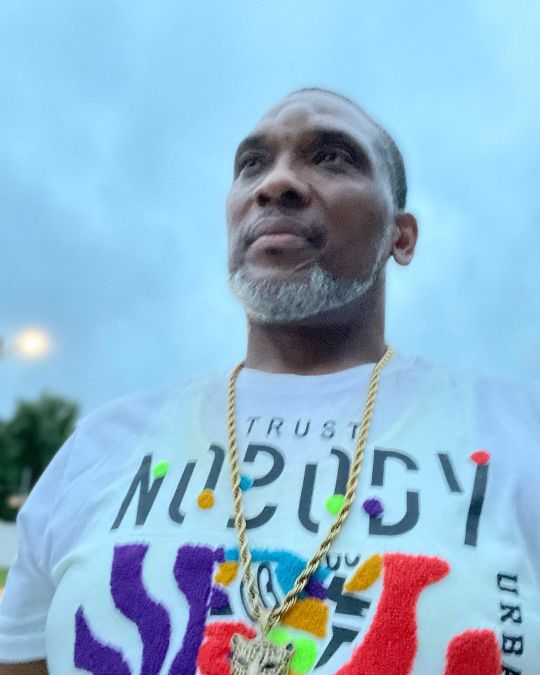
Mourning time 1 THE MOURNFUL, inspired prediction (a burden to be lifted up) concerning Tyre: Wail, you ships of [Tyre returning from trading with] Tarshish, for Tyre is laid waste, so that there is no house, no harbor; from the land of Kittim (Cyprus) they learn of it. 2 Be still, you inhabitants of the coast, you merchants of Sidon, [w] passing over the sea have replenished you [with wealth and industry], 3 And were on great waters. The seed or grain of the Shihor, the harvest [due to the overflow] of the Nile River, was [Tyre’s] revenue, and she became the merchandise of the nations. 4 Be ashamed, O Sidon [mother-city of Tyre, now a widow bereaved of her children], for the sea has spoken, the stronghold of the sea, saying, I have neither travailed nor brought forth children; I have neither nourished and reared young men nor brought up virgins. Isaiah 23:1-4 https://www.instagram.com/p/CfJLFoWOC-X/?igshid=NGJjMDIxMWI=
0 notes
Text
NG: ... do you still feel compelled to write? Is it useless? Or is it just something personal?
RS: No, it is not useless because it is our way of being human. We cannot ignore it. It is part of us. You cannot ignore it or distract it. It is, the question is why there is something and not nothing. We are creatures, we are animals, and we know how to speak. We have language, that’s all.
Rachel Shihor, HAUS RED Vol. 5
#curbside quotidian#art#lit#quote#book#rachel shihor#sylph editions#haus red#vol. 5#cahiers#artblr#art blog#bookblr#book blog#langblr#litblr#lit blog#studyblr#writeblr
7 notes
·
View notes
Text
Buy Kansa Bowl Online
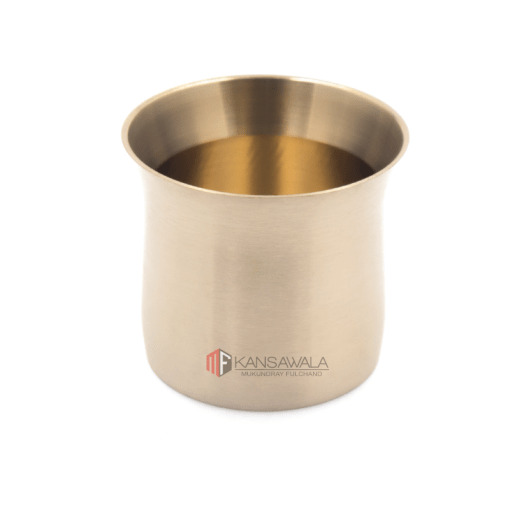
Buy Kansa Bowl Online
Gujarat’s only Handcrafted and Pure Kansa / Bronze Dinner set & Kitchenware producer with a span of more than 75 years now. Open now!
Kansara Mukundray Fulchand is a traditional family run firm which produces handmade Kansa; also known as Bronze Utensils, Tableware, Dinnerware and Kitchenware with the efficient and reliable ancient method of Heating & Beating.
We are a family of artisans who are producing these traditional Bell Metal products as well as sustaining this rare art since last five generations.
Visit our website - https://kansawalas.com/
Monday to Sunday 10 AM–6 PM
Call us -+91 787878 9893
Email us - [email protected]
Address - Kansara Bazar Rd, Opp Maru Kansara Vadi, Shihor, Gujarat 364240, India.
1 note
·
View note
Photo

Simeon's Inheritance
1 And the second lot goes out for Simeon, for the tribe of the sons of Simeon, for their families; and their inheritance is in the midst of the inheritance of the sons of Judah, 2 and they have in their inheritance Beer-Sheba, and Sheba, and Moladah, 3 and Hazar-Shual, and Balah, and Azem, 4 and Eltolad, and Bethul, and Hormah, 5 and Ziklag, and Beth-Marcaboth, and Hazar-Susah, 6 and Beth-Lebaoth, and Sharuhen; thirteen cities and their villages. 7 Ain, Remmon, and Ether, and Ashan; four cities and their villages; 8 also all the villages which [are] around these cities, to Ba‘alath-Beer, Ramoth of the south. This [is] the inheritance of the tribe of the sons of Simeon, for their families; 9 out of the portion of the sons of Judah [is] the inheritance of the sons of Simeon, for the portion of the sons of Judah has been too much for them, and the sons of Simeon inherit in the midst of their inheritance.
10 And the third lot goes up for the sons of Zebulun, for their families; and the border of their inheritance is to Sarid, 11 and their border has gone up toward the sea, and Maralah, and come against Dabbasheth, and come to the brook which [is] on the front of Jokneam, 12 and turned back from Sarid eastward, at the sun-rising, by the border of Chisloth-Tabor, and gone out to Daberath, and gone up to Japhia, 13 and there it has passed over eastward, to the east, to Gittah-Hepher, [to] Ittah-Kazin, and gone out [to] Rimmon-Methoar to Neah; 14 and the border has gone around it, from the north to Hannathon; and its outgoings have been [in] the Valley of Jiphthah-El, 15 and Kattath, and Nahallal, and Shimron, and Idalah, and Beth-Lehem; twelve cities and their villages. 16 This [is] the inheritance of the sons of Zebulun, for their families, these cities and their villages.
17 The fourth lot has gone out for Issachar, for the sons of Issachar, for their families; 18 and their border is [at] Jezreel, and Chesulloth, and Shunem, 19 and Haphraim, and Shihon, and Anaharath, 20 and Rabbith, and Kishion, and Abez, 21 and Remeth, and En-Gannim, and En-Haddah, and Beth-Pazzez; 22 and the border has touched against Tabor, and Shahazimah, and Beth-Shemesh, and the outgoings of their border have been [at] the Jordan; sixteen cities and their villages. 23 This [is] the inheritance of the tribe of the sons of Issachar, for their families, the cities and their villages.
24 And the fifth lot goes out for the tribe of the sons of Asher, for their families; 25 and their border is Helkath, and Hali, and Beten, and Achshaph, 26 and Alammelech, and Amad, and Misheal; and it touches against Carmel westward, and against Shihor-Libnath; 27 and has turned back, at the sun-rising, [to] Beth-Dagon, and come against Zebulun, and against the Valley of Jiphthah-El toward the north of Beth-Emek, and Neiel, and has gone out to Cabul on the left, 28 and Hebron, and Rehob, and Hammon, and Kanah, to great Sidon; 29 and the border has turned back to Ramah, and to the fortified city Tyre; and the border has turned back to Hosah, and its outgoings are at the sea, from the coast to Achzib, 30 and Ummah, and Aphek, and Rehob; twenty-two cities and their villages. 31 This [is] the inheritance of the tribe of the sons of Asher, for their families, these cities and their villages.
32 The sixth lot has gone out for the sons of Naphtali—for the sons of Naphtali, for their families; 33 and their border is from Heleph, from Allon in Zaanannim, and Adami, Nekeb, and Jabneel, to Lakkum, and its outgoings are [at] the Jordan; 34 and the border has turned back westward [to] Aznoth-Tabor, and gone out there to Hukkok, and touched against Zebulun on the south, and it has touched against Asher on the west, and against Judah [at] the Jordan, at the sun-rising; 35 and the cities of defense [are] Ziddim, Zer, and Hammath, Rakkath, and Chinnereth, 36 and Adamah, and Ramah, and Hazor, 37 and Kedesh, and Edrei, and En-Hazor, 38 and Iron, and Migdal-El, Horem, and Beth-Anath, and Beth-Shemesh; nineteen cities and their villages. 39 This [is] the inheritance of the tribe of the sons of Naphtali, for their families, the cities and their villages.
40 The seventh lot has gone out for the tribe of the sons of Dan, for their families; 41 and the border of their inheritance is Zorah, and Eshtaol, and Ir-Shemesh, 42 and Shalabbin, and Aijalon, and Jethlah, 43 and Elon, and Thimnathah, and Ekron, 44 and Eltekeh, and Gibbethon, and Ba‘alath, 45 and Jehud, and Bene-Barak, and Gath-Rimmon, 46 and Me-Jarkon, and Rakkon, with the border in front of Joppa. 47 And the border of the sons of Dan goes out from them, and the sons of Dan go up and fight with Leshem, and capture it, and strike it by the mouth of the sword, and possess it, and dwell in it, and call Leshem, Dan, according to the name of their father Dan. 48 This [is] the inheritance of the tribe of the sons of Dan, for their families, these cities and their villages.
49 And they finish to give the land in inheritance, by its borders, and the sons of Israel give an inheritance to Joshua son of Nun in their midst; 50 by the command of YHWH they have given to him the city which he asked for, Timnath-Serah, in the hill-country of Ephraim, and he builds the city and dwells in it.
51 These [are] the inheritances which Eleazar the priest, and Joshua son of Nun, and the heads of the fathers of the tribes of the sons of Israel, have caused to inherit by lot, in Shiloh, before YHWH, at the opening of the Tent of Meeting; and they finish to apportion the land.
— Joshua 19 | Literal Standard Version (LSV)
Literal Standard Version Bible Copyright © 2020 by Covenant Press.
Cross References: Genesis 10:18; Genesis 21:14; Genesis 49:7; Numbers 13:8; Joshua 11:1; Joshua 12:22; Joshua 15:28-29; Joshua 15:34; Joshua 15:42; Joshua 20:1; Joshua 21:24; Joshua 21:28; Judges 1:31; Judges 2:9; Judges 4:6; Judges 4:11; Judges 13:2; Judges 18:1; Judges 18:7; 1 Samuel 9:4; 1 Samuel 29:1; 1 Samuel 30:27; 1 Samuel 30:30; 1 Kings 9:13; 1 Kings 9:15; 1 Kings 9:18; 1 Kings 18:19; 2 Kings 4:8; 2 Kings 14:11; 2 Kings 14:25; 1 Chronicles 4:31; Ezekiel 48:2-3; Ezekiel 48:7; Ezekiel 48:25-26; Acts 9:36; Acts 13:19; Acts 27:3
#distribution of the land#the children of Simeon#inheritance#humility#Joshua 19#Book of Joshua#Old Testament#LSV#Covenant Press#Literal Standard Version Bible
8 notes
·
View notes
Text
Prophecies Against Tyre
Isaiah 23:1-18
23 The burden against Tyre.
Wail, you ships of Tarshish!
For it is laid waste,
So that there is no house, no harbor;
From the land of Cyprus it is revealed to them.
2Be still, you inhabitants of the coastland,
You merchants of Sidon,
Whom those who cross the sea have filled.
3And on great waters the grain of Shihor,
The harvest of the River, is her revenue;
And she is a marketplace…
View On WordPress
0 notes
Text
Joshua 13: God Informs Joshua Their Is More Land To Be Conquered And Taken
1 When Joshua had grown old, the Lord said to him, “You are now very old, and there are still very large areas of land to be taken over.
2 “This is the land that remains: all the regions of the Philistines and Geshurites,
3 from the Shihor River on the east of Egypt to the territory of Ekron on the north, all of it counted as Canaanite though held by the five Philistine rulers in Gaza, Ashdod, Ashkelon, Gath and Ekron; the territory of the Avvites
4 on the south; all the land of the Canaanites, from Arah of the Sidonians as far as Aphek and the border of the Amorites;
5 the area of Byblos; and all Lebanon to the east, from Baal Gad below Mount Hermon to Lebo Hamath.
6 “As for all the inhabitants of the mountain regions from Lebanon to Misrephoth Maim, that is, all the Sidonians, I myself will drive them out before the Israelites. Be sure to allocate this land to Israel for an inheritance, as I have instructed you,
7 and divide it as an inheritance among the nine tribes and half of the tribe of Manasseh.”
Division of the Land East of the Jordan
8 The other half of Manasseh, the Reubenites and the Gadites had received the inheritance that Moses had given them east of the Jordan, as he, the servant of the Lord, had assigned it to them.
9 It extended from Aroer on the rim of the Arnon Gorge, and from the town in the middle of the gorge, and included the whole plateau of Medeba as far as Dibon,
10 and all the towns of Sihon king of the Amorites, who ruled in Heshbon, out to the border of the Ammonites.
11 It also included Gilead, the territory of the people of Geshur and Maakah, all of Mount Hermon and all Bashan as far as Salekah—
12 that is, the whole kingdom of Og in Bashan, who had reigned in Ashtaroth and Edrei. (He was the last of the Rephaites.) Moses had defeated them and taken over their land.
13 But the Israelites did not drive out the people of Geshur and Maakah, so they continue to live among the Israelites to this day.
14 But to the tribe of Levi he gave no inheritance, since the food offerings presented to the Lord, the God of Israel, are their inheritance, as he promised them.
15 This is what Moses had given to the tribe of Reuben, according to its clans:
16 The territory from Aroer on the rim of the Arnon Gorge, and from the town in the middle of the gorge, and the whole plateau past Medeba
17 to Heshbon and all its towns on the plateau, including Dibon, Bamoth Baal, Beth Baal Meon,
18 Jahaz, Kedemoth, Mephaath, 19 Kiriathaim, Sibmah, Zereth Shahar on the hill in the valley,
20 Beth Peor, the slopes of Pisgah, and Beth Jeshimoth—
21 all the towns on the plateau and the entire realm of Sihon king of the Amorites, who ruled at Heshbon. Moses had defeated him and the Midianite chiefs, Evi, Rekem, Zur, Hur and Reba—princes allied with Sihon—who lived in that country.
22 In addition to those slain in battle, the Israelites had put to the sword Balaam son of Beor, who practiced divination.
23 The boundary of the Reubenites was the bank of the Jordan. These towns and their villages were the inheritance of the Reubenites, according to their clans.
24 This is what Moses had given to the tribe of Gad, according to its clans:
25 The territory of Jazer, all the towns of Gilead and half the Ammonite country as far as Aroer, near Rabbah;
26 and from Heshbon to Ramath Mizpah and Betonim, and from Mahanaim to the territory of Debir;
27 and in the valley, Beth Haram, Beth Nimrah, Sukkoth and Zaphon with the rest of the realm of Sihon king of Heshbon (the east side of the Jordan, the territory up to the end of the Sea of Galilee).
28 These towns and their villages were the inheritance of the Gadites, according to their clans.
29 This is what Moses had given to the half-tribe of Manasseh, that is, to half the family of the descendants of Manasseh, according to its clans:
30 The territory extending from Mahanaim and including all of Bashan, the entire realm of Og king of Bashan—all the settlements of Jair in Bashan, sixty towns,
31 half of Gilead, and Ashtaroth and Edrei (the royal cities of Og in Bashan). This was for the descendants of Makir son of Manasseh—for half of the sons of Makir, according to their clans.
32 This is the inheritance Moses had given when he was in the plains of Moab across the Jordan east of Jericho.
33 But to the tribe of Levi, Moses had given no inheritance; the Lord, the God of Israel, is their inheritance, as he promised them.
#Lord God Jehovah#Holy Bible#Joshua ch.13#Joshua#Eleazar#Israelites#Land#Possessions#Taken#Conquered#Allocate#Nine Tribes#Inheritance#Servant Of God#Territory#Moses#Only Him
0 notes
Text
Daily Bible Reading 26 March 2023
Daily Bible Reading: Joshua 12-15
Joshua 13:1-7 (ESV) Now Joshua was old and advanced in years, and the LORD said to him, “You are old and advanced in years, and there remains yet very much land to possess. This is the land that yet remains: all the regions of the Philistines, and all those of the Geshurites (from the Shihor, which is east of Egypt, northward to the boundary of Ekron, it is…
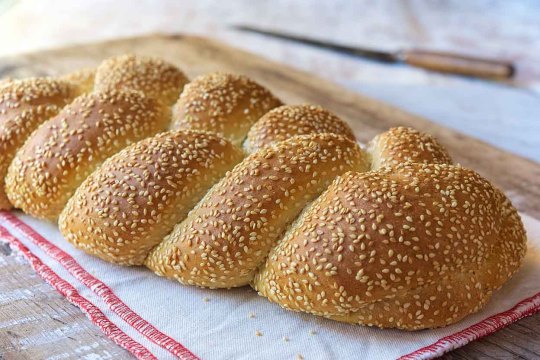
View On WordPress
0 notes